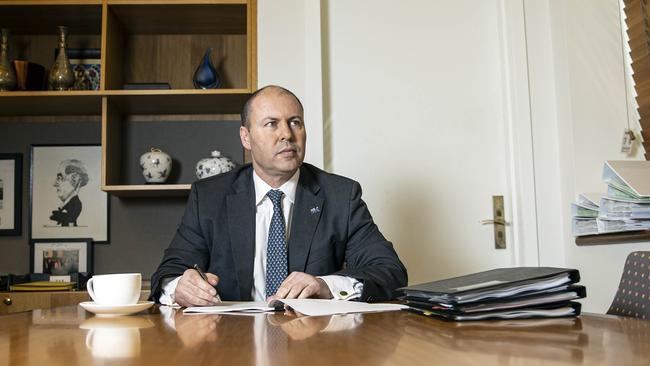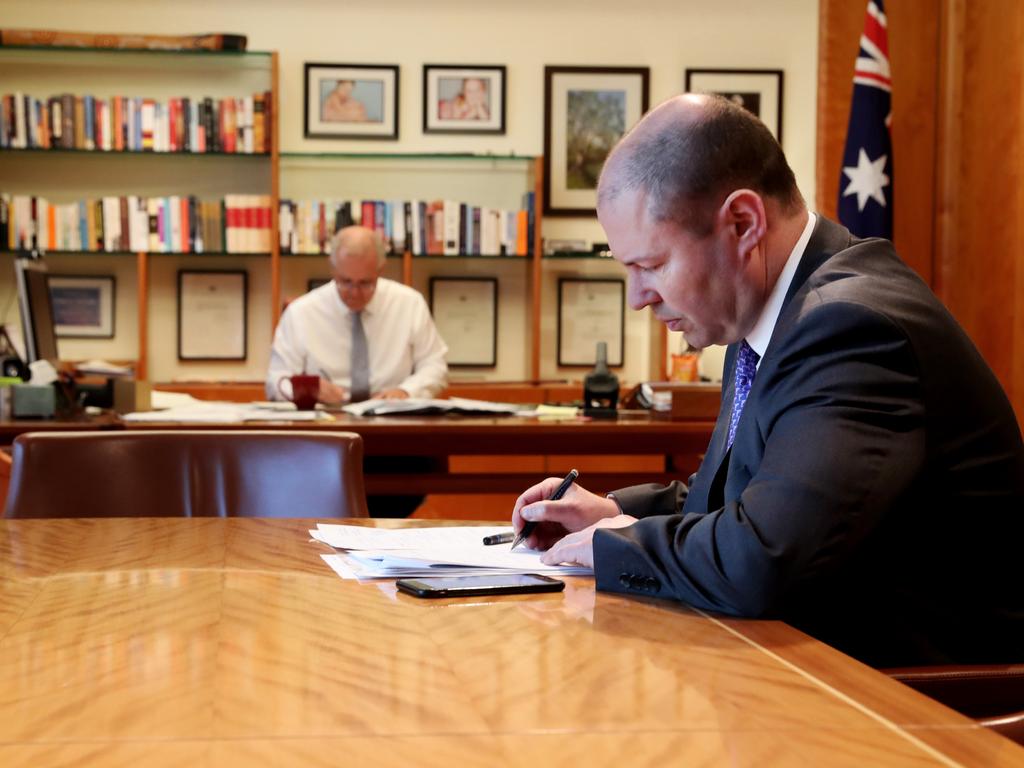
You would not know it, looking at most of the nation’s media. With up to one million people out of work and a COVID-19 budget deficit likely to exceed $200bn, most of the country’s journalists are still running around looking for a couple of extra coronavirus cases, or amplifying the special pleading of any group that wants more government handouts.
The 21st century has been bad for economic reform. Australians have been able to relax on the profits of the mining boom. Not since John Howard’s GST introduction in 1998 has a national leader achieved substantial reform. The Hawke and Keating days of opening up the economy and deregulating the labour market set the country up for a record 29 years of growth. That’s all over now.
The Rudd-Gillard-Rudd governments managed to expand deficit spending by committing to the National Disability Insurance Scheme and the first round of Gonski school education reforms.
These blew out Australia’s budget deficits for almost a decade.
But they did not succeed in lifting school education performance on global education measures.
Nor was the NDIS fully funded by a Medicare-style levy as recommended by the Productivity Commission. Neither has it succeeded in providing a social safety net for the disabled and their carers.
Like many of Labor’s big spending projects (pinks batts, Building the Education Revolution, free TVs for pensioners), it has offered a pot of money for the unscrupulous to rort.
The Abbott and Turnbull governments were unable to wind back Labor’s spending after the failure of then-treasurer Joe Hockey’s 2014 “lifters and leaners” budget. The Coalition, often facing an unfriendly Senate, had to rely on bracket creep and economic growth to inch back to budget balance. Coronavirus ensured Treasurer Josh Frydenberg did not quite get to deliver the nation’s first budget surplus since 2007.
The next one may be a decade away. That’s as it should be. We need to take advantage of historically low interest rates to borrow to build infrastructure to create jobs and replace some of the creaking systems holding back the economy.
Despite the squawking of the ABC, the Guardian and certain parts of Nine newspapers, Frydenberg should speed up the glacial tax cuts that have been legislated to phase in from 2022 to 2024.
The next, second stage of the three-phase tax cuts, due in 2022-23, lifts the 32.5c bracket threshold from $37,000 to $45,000 and the 37c bracket from $90,000 to $120,000. The “Stage 3” tax cut in 2024-25 scraps the 37c bracket and applies a 30c rate from $45,000 to $200,000. The top rate will be 45c. The Left media hate the tax cuts and want them scrapped in favour of more welfare spending — an idea that was described by Deloitte chief Chris Richardson as “junk economics”, in a column by this newspaper’s Paul Kelly last week.
Ours remains among the world’s most progressive tax systems, as last year’s budget argued.
But journalists of the Left cannot get past the idea that, in any tax-cut proposal, those who pay most of the tax also receive bigger cuts than those who pay little.
The government won’t yet look at much-needed industrial relations reform, still spooked by hostility to Howard’s failed WorkChoices of 2005. That’s when we decided as a nation that no work was better for young people than flexible arrangements that may pay slightly less.
Despite high levels of unemployment, farmers cannot get people to help harvest produce, having relied for years on overseas backpackers to do the work young Australians won’t. In much of regional Australia, free of coronavirus all year, small businesses are finding it hard to get people to work because JobSeeker payments have made even part-time work unattractive.
Much has been written about this budget’s big picture, yet the most interesting parts are likely to be hidden deep in Treasury’s analysis. It’s likely to say China will remain our largest export destination, despite troubles in the relationship.
Iron ore, coking coal and thermal coal sales to China should grow as the world’s No 2 economy accelerates out of its own coronavirus slowdown.
Treasury’s assumptions about coal exports will be fascinating.
Coal is likely to continue as our No 2 global export. Prospects for increased sales of coking and thermal coal to India are good. Ignore the doomsaying of Green economic urgers who last week again predicted the end of coal because China has committed to net zero emissions by 2060 — four decades away and in the face of its own rapidly expanding coal-fired power generation.
Also fascinating will be Treasury’s state-by-state analysis. Victoria will feature heavily in the main analysis because the state represents one quarter of the national economy and its prolonged second shutdown has stopped Australia’s economic snapback in its tracks.
We know the Andrews Government’s mishandling of the crisis has cost the lives of more than 800 Victorians, but on Tuesday we will know what its incompetence has cost the rest of the nation.
The state analysis should tell us how badly affected tourism-reliant Queensland has been by the populist border closure with NSW.
The Sunshine State has traditionally relied on home building driven by interstate migration, coal exports and tourism, both from interstate and overseas, to grow its economy.
Queensland Premier Annastacia Palaszczuk is betting the closure — which may well be lifted the day after the October 31 election — will have appealed to the state’s traditional Bjelke-Petersen-style parochialism. With the highest deficit of any state, it will be interesting to see what Treasury thinks of Queensland’s post-election prospects. Analysis of WA’s position will also tell us whether Premier Mark McGowan has been wise to keep his state’s borders closed. He claims opening up would only help the other states, yet the seat of Mandurah, next to his own, now has 18 per cent unemployment, the nation’s highest, according to the Mandurah Mail.
We will see how NSW, the largest state economy, has fared, given it has largely kept its borders and economy open, apart from the shutdown to Victoria following Melbourne’s second wave.
Treasury’s assessment of the collapse of international migration, including the international student market, will be interesting. This column has argued Treasury uses population growth as a virtual Ponzi scheme to drive total GDP. The downside has been the sluggish rate of per-capita income growth, largely masked by national figures. This will likely be a particular test for Queensland, where population growth has been driven by interstate migration as people from outer Sydney and Melbourne flee the problems created by rapid overseas migration.
Scott Morrison’s focus on improving TAFE training as migration plummets should help start redressing three decades of reliance on foreign visa workers to do the jobs young Australians are not trained for, especially in mining and farming.







Tuesday’s federal budget will be the most important since World War II, as Australia tries to grow its way out of the biggest recession since the 1930s.